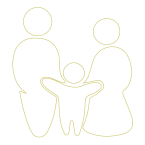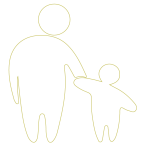Suicide Risk During Pregnancy and Postpartum
Often times we associate depression symptoms as a risk factor for suicide. This is certainly an unfortunate truth but did you know that suicidal ideation is also relatively common among pregnant and postpartum women? When a common person hears of a woman being pregnant you typically associate that as a time of their life in which they are filled with joy and anticipation of meeting their new baby but for some women it can actually be one of the riskiest, and scariest times of their lives as suicide has emerged as one of the leading causes of death among new moms.
While it is important to recognize that mental health awareness has increased greatly in recent years new mothers and suicide prevention is still not nearly focused on enough. In fact, maternal mortality by suicide is considered to be a public health crisis that has silently grown worse with it being the second leading cause of death among women 25-34 years of age and has steadily increased over the last 20 years.
One of the reasons that maternal suicide remains underreported involves how the deaths are reported. Pregnancy related death is defined as a death of a woman while pregnant or within one year of the end of pregnancy. It includes incidental or accidental deaths; therefore, suicides are left out of the stats. Which in turn contributes to the issue of lack of awareness, resources and conversations about the crisis.
We live in a society that idealizes pregnancy with the overall picture of a happy mother and baby. We are inundated with images, from commercials and social media, of motherhood as a positive and rewarding experience. This clashes with the depression, isolation, despair, and psychotic symptoms a pregnant or new mother may feel and can lead to suicide ideation and attempt. This societal myth contributes to feelings of shame, which can lead to secrecy and isolation-the very things that we try to minimize when trying to prevent suicide.
So how can we break barriers? We can help by having open discussions with pregnant and postpartum moms. Many new moms may not seek help for mental health treatment out of fear that disclosing how they feel may lead to a possible termination of parental rights. We can help educate them and their families that not seeking help puts them at greater risk. Women have a great deal of contact with medical professionals during pregnancy and postpartum. We need to encourage new moms to have a conversation with their doctor on how they are feeling.
On a macro level, we need to have pediatricians and OB/GYNs educated on this issue. We can also have new moms complete the Edinburgh Postnatal Depression Scale (EPDS) self-test which is used to detect risk of postpartum depression. This screening tool is used globally and can be found in many languages. Let’s help new moms and their families by giving them permission to feel less than joyous during pregnancy and the postpartum period.



